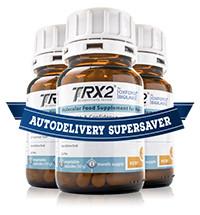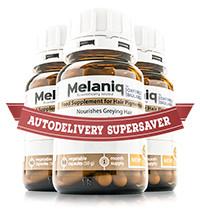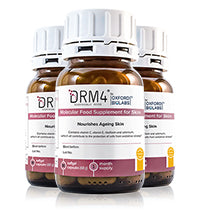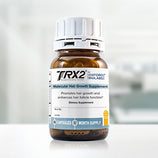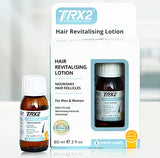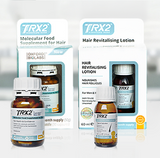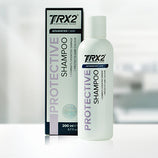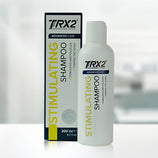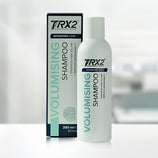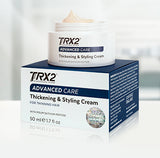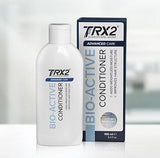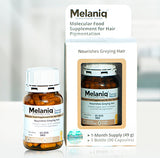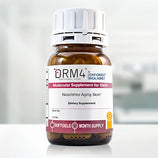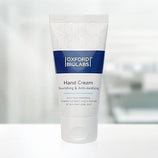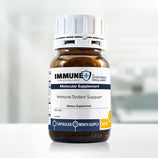How does Biotin benefit thinning hair?
There’s no doubt that Biotin is the most popular skin, nails, and hair supplement on the market today. It is praised and recommended among beauty queens, celebrities, and everyone in between. It comes as no surprise why Biotin is also known as Vitamin B7 and Vitamin H; the H (Haar und Haut) in German stands for "hair and skin." Over the years, there has been some controversy surrounding taking Biotin for hair growth and thinning, although dozens of studies have confirmed its positive effect on skin, nails, and hair. This review will highlight all the benefits of Vitamin B7 as well as some secrets many do not know.
Can a person be deficient in Biotin?
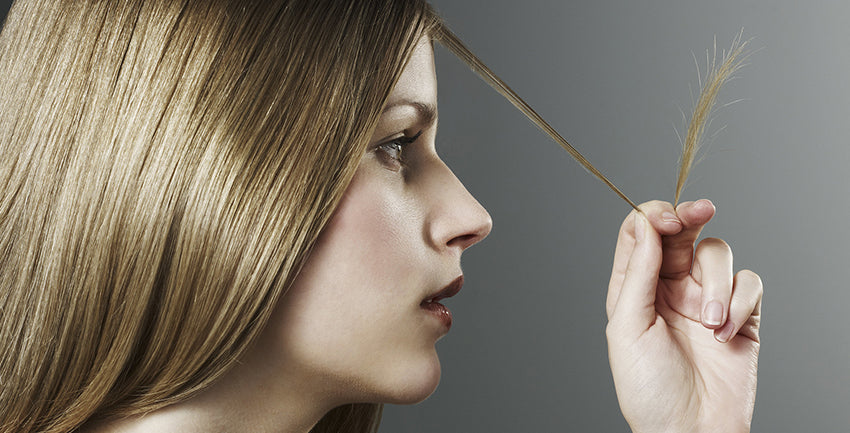
Biotin is a water-soluble vitamin, which means it doesn’t stay in the body for long after being ingested. Like with other water-soluble vitamins (such as the rest of the B vitamins, and vitamin C) there is a possibility that some underlying illness or lack of Vitamin B7 intake with food could potentially lead to biotin deficiency.
Mainstream science considers Biotin deficiency to be rare. However evidence shows that marginal Vitamin B7 deficiency may occur during normal pregnancy, and may cause birth defects like abnormal skeletal development, among others. According to another study, nearly 40% of women who sought help for hair loss had biotin values consistent with deficiency (<100 ng/L).
Deficiency that is not diet-related is often associated with some genetic inability to break down the vitamin. Those taking antibiotics and epilepsy drugs, diabetics, smokers, and those that have undergone gastrectomy (partial or total removal of stomach) have been shown to have low levels of Vitamin B7 as well.
Symptoms of Biotin deficiency
Common symptoms include the following:
- Dry skin
- Rashes including red, patchy ones near the face and mouth (periorofacial macular rash)
- Fine and brittle hair
- Hair loss (alopecia) and thinning
- Anemia
- Seborrheic dermatitis
- Fungal infection
- Seizures
- Ataxia
The 40% of women from the study above showed symptoms of seborrheic dermatitis, which is also a clear symptom of deficiency. This demonstrates that Biotin and hair growth are definitely connected, and many unsuspecting men and women may be missing a simple vitamin.
Of course, Vitamin B7 levels, like the levels of many vitamin and minerals, may be affected by:
- Genetic factors
- Eating disorders
- Bad habits (smoking and drinking)
- Pregnancy
- Age
- Medical conditions
Which foods contain Biotin?
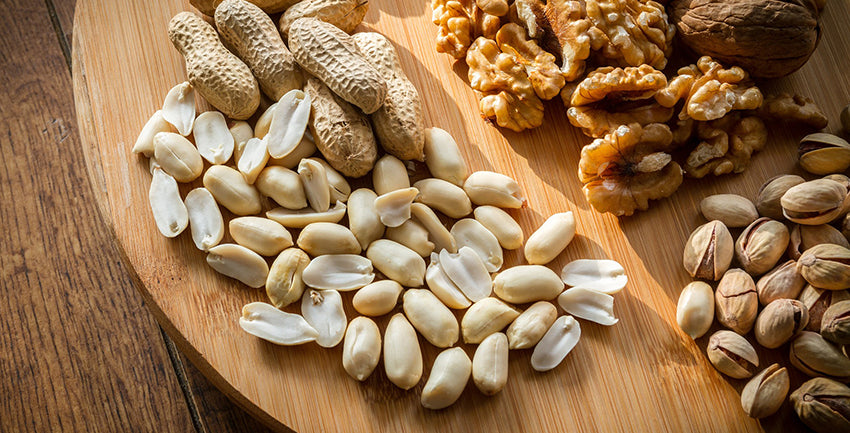
A maximum, or even toxic dosage has never been established. It is for this reason that many foods which may potentially contain Biotin, have not been evaluated for concentration.
Biotin is found naturally in foods like:
- Nuts (almonds, peanuts, walnuts)
- Various vegetables (tomatoes, onions, carrots)
- Seeds
- Grains
- Dairy products
- Eggs
- Mushrooms
Eggs are an excellent source of Vitamin B7, although it has been shown that a diet high in raw egg whites may lead to biotin deficiency. This is due to an interference between a component in raw egg whites and biotin absorption. Don’t worry about eggs having too much cholesterol because recent evidence has shown that eating whole eggs was not associated with cardiovascular disease. A Harvard health letter from early 2017 recommends no more than one whole egg a day for the general population, and no more than three eggs per week if one has diabetes, is at high risk for heart disease from other causes (such as smoking), or already has heart disease.
How Biotin for thinning hair is useful
Like the other B vitamins in the family, Biotin takes part in a vast number of physiological and biological processes in the body, and importantly, plays a key role in cell growth and protein synthesis.
Keratin is one of the main proteins in hair, and is made up of amino acids, including BCAAs. Because of Biotin’s profound effect on protein production, it helps strengthen hair shafts, stops thinning hair, and restores hair texture.
Biotin hair benefits are only one aspect of its usefulness. It also protects and rejuvenates the skin by hydrating and moisturising it from within. As an added bonus, it prevents nail brittleness, so women get a triple benefit for the parts of the body they most cherish - their hair, skin, and nails.
Biotin also promotes and maintains the following:
- Normal energy-yielding metabolism
- Normal macronutrient metabolism
- Normal function of the nervous system
Should you take Biotin supplements for hair?
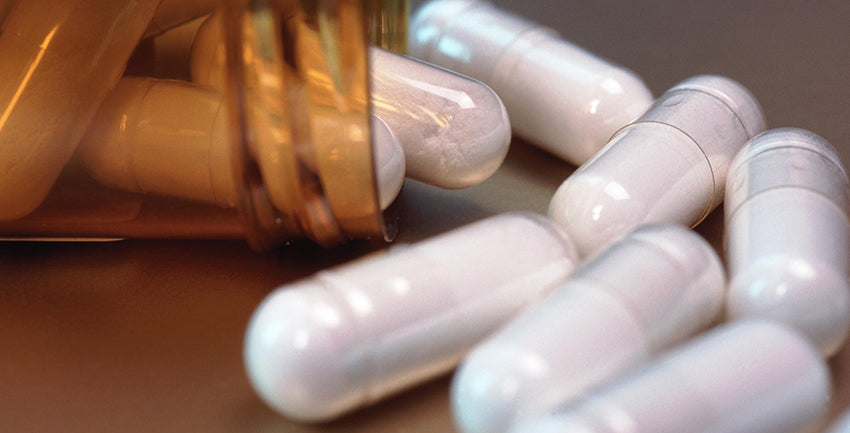
If the nearly 40% of women in the breakthrough study previously mentioned found solace in Biotin what about the other 60%? Presumably, the factors influencing their hair were different. But why is this the case?
This is in part due to the complexity of hair growth, which requires certain nutrients and conditions. Imagine if animals suddenly went bald in the winter - they would freeze to death! Genetics play their role from an evolutionary perspective, but external factors such as poor lifestyle choices, oxidative stress, pollution, and toxins are no less to blame for premature hair loss and thinning.
How do Biotin supplements actually work?
Biotin is not a universal solution to managing hair problems, no matter how organic or 100% natural the source. Moreover, using just Vitamin B7 for years on end is a recipe for lost time and lost hair because it doesn’t work very well on its own.
When biotin is combined with other vital nutrients like amino acids, particularly BCAAs (branched-chain amino acids), and other vitamins and minerals, it produces better results and is more effective in promoting hair growth. The synergistic ingredients in TRX2® are in perfect proportions so this way they work together and not against each other,
What’s the recommended dosage/intake for Biotin?
The current nutrient reference value in Europe is set at 50 mcg/day. There may be some confusion regarding reference values because the USA and Europe have different numbers. The average intake from foods in most western populations is about 35–70 mcg/day, indicating that most people in these countries consume adequate amounts of Biotin.
Are there side effects to taking Biotin?
Biotin is available over-the-counter, just like any other vitamin. But unlike most vitamins, there is practically no evidence showing any side effects from taking high doses (in clinical studies). However, testimonials from men and women from around the globe have shed light on several possible side effects and mechanisms.
Cystic acne tops the list by a large margin, most often presenting in women taking ultra-high doses. Some women complain of nausea, vomiting, and even elevated glucose levels. Additionally, high Biotin concentrations may interfere with thyroid tests and cancer screening, as the vitamin is used to bind to proteins in some laboratory tests.
Conclusion
Biotin supplements are still in vogue but hair growth is usually multifactorial. In medicine, as in life, oftentimes the simplest answer is the correct answer. In reality, however, the exact reason or reasons are not always clear.
That's why TRX2® hit hair loss from multiple angles. Experienced Oxford Biolabs® scientists worked out the best possible intake and ratio of ingredients based on credible science, so one can’t simply purchase all the ingredients separately and expect the same results.
Biotin is just one component of TRX2®, which also includes several proven ingredients that have all demonstrated efficacy in supporting and maintaining normal hair: zinc, selenium and niacin.
It is, though, the first supplement to contain potassium chloride, Carnipure™ (the highest grade L-carnitine on the market) and BCAAs, delivered as a proprietary potassium channel-stimulating complex.
